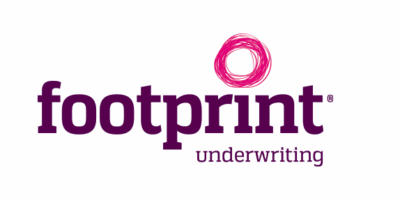The practice of businesses promoting sustainability and social responsibility in their operations can be traced back to the mid-20th century and arguably to the industrial revolution. And though environmental reporting began in the 1990s in response to a marked increase in the discourse around environmental concerns and a growing demand for sustainable and ethical business practices, ESG is a relatively newer term that is widely attributed to the United Nations who used it in its 2004 report, ‘Who Cares Wins’.
Our individual values drive our interest in determining whether an organisation is carrying out its activities in a sustainable way. This might be because we are thinking about doing business with them, considering working for them, or simply trying to decide if we want to become or remain a customer. We can gather intelligence in a number of ways but one of the best sources of information about an organisation are its published reports.
For a long time, these documents were mainly of interest to shareholders and potential investors concerned with the bottom line. But in recent decades a growing shift in public focus to long-term value has prompted organisations to move away from purely financial accounting to also disclosing information about the impact their business activities have on society and the environment. This practice has become known as Sustainability or ESG Reporting. Because of the rise in the importance now being placed on reported ESG and Sustainability information by an increasing number of stakeholders for a growing number of reasons, it is essential that organisations are consistent and transparent in the way they communicate their ESG and Sustainability information. But, because there is no single standard for ESG reporting, one of the main challenges for stakeholders is in drawing comparisons between the reports they read.
Internationally, there are a wide range of voluntary ESG reporting frameworks in use, though designed for reporting to different audiences. However, in recent years there has been a call for standardising reporting. In 2020 the World Economic Forum (WEF) in collaboration with the Big Four accounting firms published ‘Towards Common Metrics and Consistent Reporting of Sustainable Value Creation’ in which they reference four pillars: Governance, Planet, People, and Prosperity. We can draw similarities in this work to John Elkington’s 1994 ‘Triple Bottom Line’ (TBL) reporting model which featured the Three Ps (People, Planet and Profits), but the WEF’s effort brings us even further along the road towards balancing traditional financial accounting metrics with those that measure and communicate sustainable value creation.

Together with the trend towards standardisation, mandatory reporting is now becoming a requirement internationally. In the UK, the Companies Regulations 2022 (CR22) entered into force on April 6th, 2022. In amendment to the Companies Act this regulation requires organisations to disclose how they manage climate-related risks and to describe the actual and potential impact that their climate-related risks have on their businesses. In the European Union and replacing the Non-Financial Reporting Directive (NFRD), the Corporate Sustainability Reporting Directive (CSRD) became effective on January 5th, 2023, and will be rolled out on a staggered basis from January 1st, 2024. Organisations who fall under it will be required to carry out a double materiality assessment to determine what additional topics beyond the base they should include in their reports. Reports must cover the impact of business activities on society and the environment as well as the impact that ESG activities have on the business. The scope of this directive is wide, encompassing all large companies and the majority of listed companies – including EU-based subsidiaries of non-EU organisations, where applicable. And in the US, the Securities and Exchange Commission’s Climate Related Disclosures rule was expected to be passed in October 2023 but at the time of writing this has not yet happened. However, the state of California passed three climate disclosure laws in October with yet another in the pipeline.
An important point to note in relation to these mandatory reporting requirements is that while your organisation may not be directly captured by them, its position within the supply chains of companies that are directly affected may well result in those customers demanding a disclosure of relevant information from you. And while your organisation may not be obliged to publish an ESG report, doing so voluntarily can have a positive effect and build trust with potential customers, as well as with investors and employees.
So, whether you have decided to report on a voluntary basis or whether it has been mandated by a regulator, demanded by your shareholders, or requested by your customers, your objective will be the same – to disclose information about your organisation’s Environmental, Social and Governance initiatives in a way that helps interested stakeholders (e.g. investors, customers, employees, volunteers, Not-for-Profits, civil society organisations, etc.) to evaluate your organisation’s ESG and Sustainability performance effectively.
To learn more about how CalQRisk can help you streamline your ESG Risk reporting, contact us for a free tailored demo today.










